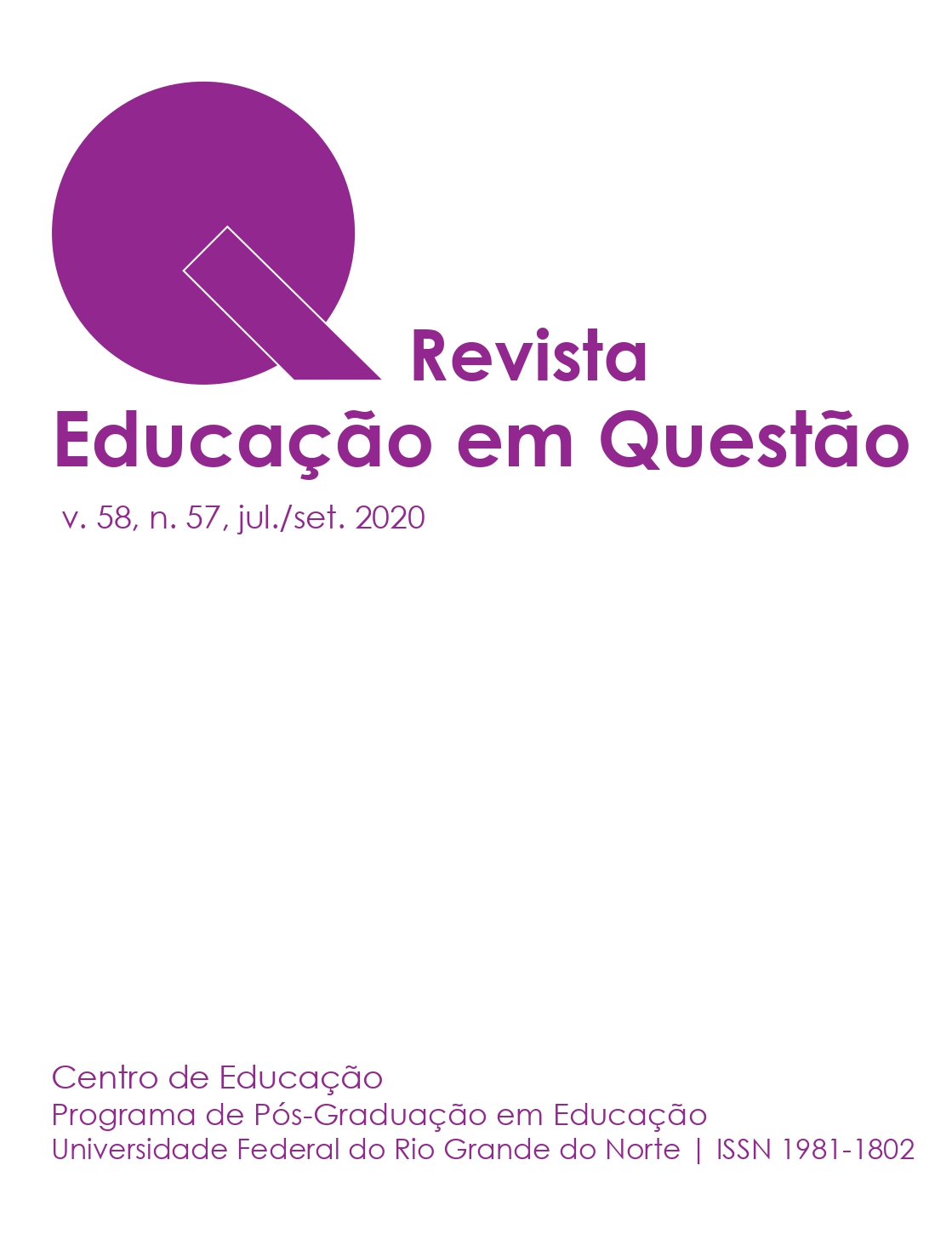The Boy and the World
losses and confrontations of children in Brazilian cinema
DOI:
https://doi.org/10.21680/1981-1802.2020v58n57ID21100Keywords:
Cinema. Childhood. Migration. Globalization.Abstract
In this article, we will look at the narratives of uprooting and confrontation covered in the animation feature movie "O menino e o Mundo" (The Boy and the World, Brazil, 2013), by Alê Abreu. Our objective will be to analyze, in the power of this work, the traces of a Brazilian childhood present in forced migratory movements in the constitution of cities and their human consequences. The theoretical contribution will be based on Milton Santos with his view of the motivations and consequences of the internal mobility of populations in Brazil and Latin America; in Bauman's analyses of the social causes and human consequences of the individuals’ wandering in the globalized space; and also in the contributions of Cecconi and Polenghi who point to cinema as a source for historical studies of childhood. As a result, we hope to expand the understanding of the presence and role of childhood in the dynamics of migration and the city, also highlighting the place of “The Boy and the World” in the history of Brazilian cinema.
Downloads
References
BAUMAN, Zygmunt. Confiança e medo na cidade. Tradução: Eliana Aguiar. Rio de Janeiro: Jorge Zahar, 2009.
______. Globalização: as consequências humanas. Tradução: Marcus Penchel. Rio de Janeiro: Jorge Zahar, 1999.
CECCONI, Luciano. I bambini nel cinema: le rappresentazioni dell’infanzia nella storia del cinema – com um contributo di Benedetto Vertecchi. Milano: Franco Angeli, 2017.
CERTEAU, Michel De. A invenção do cotidiano: artes de fazer. Tradução: Ephraim Ferreira Alves. Petrópolis: Vozes, 1994, 4ª.ed.
FARGE, Arlette. Lugares para a História. Tradução: Fernando Scheibe. Belo Horizonte: Autêntica, 2011. (Coleção História e Historiografia)
ORTEGA Y GASSET, José. La Deshumanizacion del Arte/ Ideas Sobre la Novela, Santiago de Chile Cultura, 1937.
POLENGHI, Simonetta. Immagini per la memoria: il cinema come fonte storico-educativa. IN: MALAVASI, Pieluigi; POLENGHI, Simonetta; RIVOLTELLA, Pier Cesare (a cura di). Cinema, pratiche formativa, educazione. Milano: VitaePensiero, 2009, p.19-52.
ROSA, Miriam Debieux; BERTA, Sandra Letícia; CARIGNATO, Taeco Toma; ALENCAR, Sandra. A condição errante do desejo: os imigrantes, migrantes, refugiados e a prática psicanalítica clínico-política. Revista Latino americana de Psicopatologia Fundam., São Paulo, v. 12, n. 3, p. 497-511, Sept. 2009. Disponível: http://www.scielo.br/scielo.php?script=sci_arttext&pid=S1415-47142009000300006&lng=en&nrm=iso. Acesso 28 July 2017.
SALIBA, Elias Thomé. História e mobilidade em Central do Brasil. IN: SOARES, Mariza de Carvalho (org). A história vai ao cinema. Rio de Janeiro: Record, 2006.
SANTOS, Milton. Ensaios sobre a urbanização Latino-Americana. São Paulo: HUCITEC, 1982.
______. O espaço da cidadania e outras reflexões. Organização: SILVA, Eliane.; NEVES, Gervásio Rodrigo.; MARTINS, Liana Bach. Porto Alegre: Fundação Ulysses Guimarães, 2011. (Coleção o Pensamento Político Brasileiro; V. 3)
TEIXEIRA, Inês Assunção de Castro; LARROSA, Jorge; LOPES, José de Souza Miguel. Apresentação: Olhar a Infância. IN: Teixeira, Inês.; LARROSA, Jorge.; LOPES, José de Sousa Miguel (orgs.). A infância vai ao Cinema. Belo Horizonte: Autêntica, 2006. (Coleção Cinema, cultura e educação).
Downloads
Published
How to Cite
Issue
Section
License
The Journal Education in Question shall retain the copyright in all articles that it publishes.
The authors and co-authors of articles and book reviews, published in the Journal Education in Question, shall wait for at least 1 (one) year before they are allowed to submit new works for publication.






